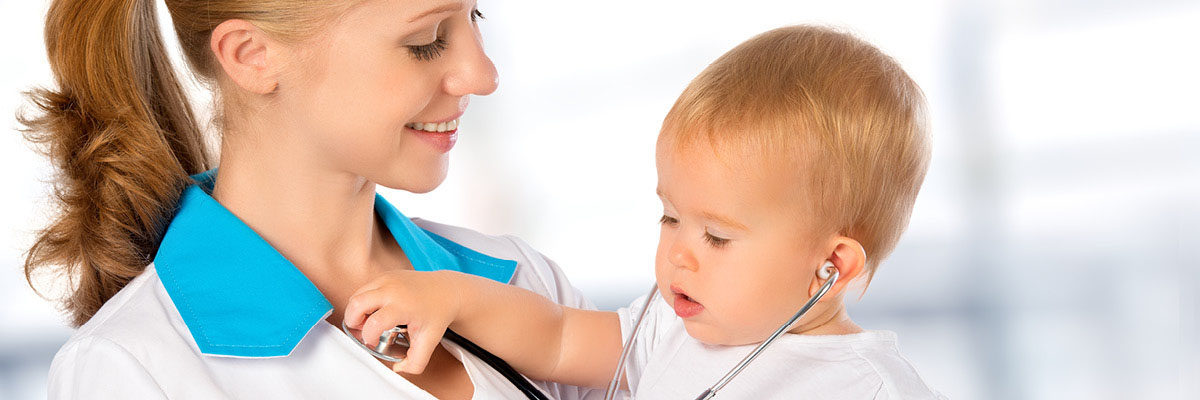

TUESDAY, Jan. 4, 2022 (HealthDay News) -- Babies born at the height of the pandemic appear to suffer small but significant delays in their motor and social development, a new study reports.
Babies were particularly at risk if their mothers were in the first trimester of their pregnancy during spring 2020, when the United States entered lockdowns.
"It's important to recognize these are very slight differences. There weren't a large number of babies that were failing all of a sudden in terms of development," said senior researcher Dr. Dani Dumitriu, a pediatrician with Columbia University in New York City. "But the average scores were significantly different, even though that difference wasn't huge."
But there's good news as well -- it doesn't appear that becoming infected with COVID-19 during pregnancy is the cause of these developmental delays.
"We really looked at it from every which way, and there was just absolutely no signal," Dumitriu said. "Maternal COVID-19 during pregnancy did not affect any of the outcomes that we were looking at, even mildly."
Instead, the stress of pandemic lockdowns is the more likely culprit, Dumitriu theorized. Stress causes the body to release many different hormones and immune system chemicals that can make their way to the fetus.
"The earlier a stress happens in pregnancy, the [greater] the likelihood it has that it will reverberate throughout the entire development," Dumitriu said.
It's likely these kids will grow out of these developmental delays, which were noted when they were 6 months old, Dumitriu added.
"Six months of age is a poor predictor of long-term outcomes," Dumitriu said. "Six months is a very early developmental stage, and there's lots of things that can happen between six months and two or three or four years. There's nothing about a six-month time point that says that anything is set in stone."
"However, it does mean we need to continue to study this population. We need to keep a close eye on these infants and be ready to intervene if needed," Dumitriu added.
For this study, Dumitriu and her colleagues tracked 255 babies enrolled in a study of the effects of COVID-19 on infant health. Of the babies, all of whom were born between March and December 2020, 114 had been exposed to COVID while in the womb and 141 had not.
The analysis revealed that infants born during the pandemic had significantly lower scores on gross and fine motor skills and personal-social development compared with babies born prior to the advent of COVID-19.
Infants who were early in gestation when the lockdowns struck were particularly affected, compared to those whose moms were in their second or third trimesters at the time, the researchers found.
However, kids born to moms infected with COVID did not have any increased risk of developmental delays, Dumitriu's team discovered.
The study was published Jan. 4 in the journal JAMA Pediatrics.
The finding doesn't mean that COVID infection during pregnancy poses no risk to fetuses in the womb, said Mollie Wood, an assistant professor of epidemiology at the University of North Carolina at Chapel Hill.
"It's widely accepted now that preterm births have been pretty reliably associated with COVID infection in pregnancy. If someone has COVID while they're pregnant, they're more likely to give birth early," said Wood, who wrote an editorial accompanying the new study.
Pregnant women with COVID also are at increased risk of stillbirth, and might be at increased risk of other pregnancy complications, according to the U.S. Centers for Disease Control and Prevention.
Wood is concerned that the new study could be used as an argument that women don't need to worry about COVID during pregnancy, and therefore shouldn't bother getting vaccinated.
"That's emphatically not true," Wood said. "We know that pregnant people with COVID have worse pregnancy outcomes than those who don't have the virus. It's extremely important to get vaccinated during pregnancy. All of the major obstetric organizations in the U.S. and many of those abroad recommend it."
Parents who are concerned that the pandemic might affect their newborn's development should take pains to interact with their child as much as possible, Dumitriu said. They should spend lots of time talking, singing and interacting with their newborn, including plenty of face-to-face time.
"I always stress the importance of not wearing their mask when they're inside their homes, so the baby can see the whole face of mom and dad and other close family members," Dumitriu said. "The more face-to-face time babies get, the more they learn social functioning, language and emotional regulation."
More information
The U.S. Centers for Disease Control and Prevention have more about the effects of COVID-19 on pregnancy.
SOURCES: Dani Dumitriu, MD, PhD, pediatrician, Columbia University, New York City; Mollie Wood, PhD, MPH, assistant professor, epidemiology, University of North Carolina at Chapel Hill; JAMA Pediatrics, Jan. 4, 2022
Robitussin Honey Cough Syrup Recalled Due to Fungal Threat
Saltwater Drops in Nose Could Shorten Kids' Colds
Folks Often Hide Infectious Illness at Work, Socializing
Flu May Be Tougher on Brain Health Than COVID-19: Study
Moderna Announces Good Results From Trial of Combo COVID/Flu Vaccine
Bird Flu Found in Sea Mammals, Upping Risk to Humans
Expert Advice on Preparing for the Fall COVID, Flu Season
Obesity Raises Risk of Severe Infection, Especially in People With Diabetes